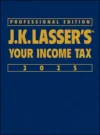Unpaid Divorce Property Settlement Isn’t a Deductible Theft
It’s not uncommon for couples to divorce and have a property settlement only to see that settlement unmet. Does this constitute a theft loss that can be deductible? (Remember that for 2018 through 2025, no theft loss can be claimed as an itemized deduction for personal-use property unless resulting from a federally declared disaster.) The Tax Court looked at this very situation.
A couple in Connecticut divorced, but the husband failed to pay the wife the property ordered by the court. Even after he was held in contempt, he did not pay her the property. She claimed a theft loss due to embezzlement (this involved a tax year before 2018). The Tax Court denied her the deduction (Lisa A. Bruno, TC Memo 2020-156). To be deductible, a theft must be a crime under state law and this situation did not amount to one. The court noted that former spouses often fail to comply with divorce agreements, but that doesn’t make it a theft.
Rollover
A tax-free reinvestment of a distribution from a qualified retirement plan into an IRA or other qualified plan within 60 days.



